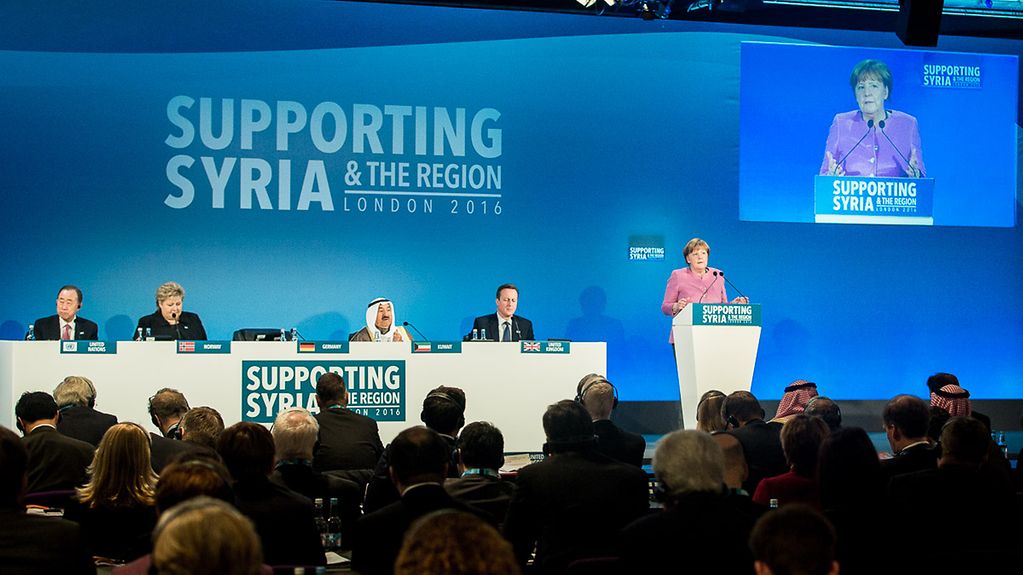Der Link wurde in Ihrer Zwischenablage gespeichert
Germany has not only honoured its pledges of financial support for Syria and its neighbours. A report on the outcome of the London conference "Supporting Syria and the Region", now adopted by the Cabinet, demonstrates that it has actually provided more assistance than originally promised.
3 Min. Lesedauer

At the London conference in February 2016, Germany pledged 2.3 billion euros for Syria
Foto: Bundesregierung/Denzel
In November 2016, the German Bundestag called on the government to report on the implementation of its assistance for Syria. The report now available looks, in particular, at the goals and commitments laid out in the final statement issued at the London donors’ conference on Syria in February 2016, and the resulting steps taken.
To give one example: representatives of 57 states, 10 regional organisations and 19 United Nations agencies attended the international donor conference "Supporting the Future of Syria and the Region" on 25 April 2018 in Brussels. A total of some 6.2 billion euros was pledged.
In Brussels, the German government pledged assistance totalling almost 1.8 billion euros, about one third of which was new funding. Germany has thus more than honoured its pledges. The donor community has also stood by the pledges made in London in 2016 and Brussels in 2017.
Germany’s support for the people of Syria and the region (Jordan, Lebanon and Turkey) is bearing fruit. Some 12,000 Syrian teachers have found a job and are providing schooling for over 250,000 Syrian children in Turkey.
In Lebanon, financial support has made it possible to significantly increase school enrolment: 70 per cent of Syrian children of school age now attend school. The German government thus feels that it is right to maintain the high level of German financial assistance for Syria and the region.
Germany is, not least, making a significant contribution to enabling the World Food Programme to provide food for more than three million people in Syria every month. This has allowed the German government to counter the destabilisation of the region and create prospects of a future in the region for the affected people.
The German government aims to help bring about a sustainable political solution to the conflict in Syria. It also supports the UN-brokered Geneva negotiation process.
The German government is one of the largest donors in the region, and is one of the main partners of Jordan, Lebanon, Iraq and Turkey in supporting Syrian refugees and the host communities.
In addition to the Geneva peace process under the aegis of the United Nations, the international donor conferences, which have been held since 2013, are an important platform for coordinating and stepping up international assistance in Syria and neighbouring countries.
The conflict which has been raging in Syria for more than seven years has led to a humanitarian crisis in the region. The United Nations estimates that fighting in large parts of the country has already resulted in the loss of more than 400,000 lives and left 1.2 million people injured.
More than half of Syria’s population of 22 million have been forced to flee their homes, including 6.1 million people who are internally displaced within Syria. At least 5.6 million people have found shelter in neighbouring countries, Turkey, Lebanon, Jordan, Iraq and Egypt.
Many of the refugees and internally displaced persons are living under desperate, sometimes life-threatening conditions. For the neighbouring host countries, providing for the refugees is an enormous challenge. They need the support of the international community.